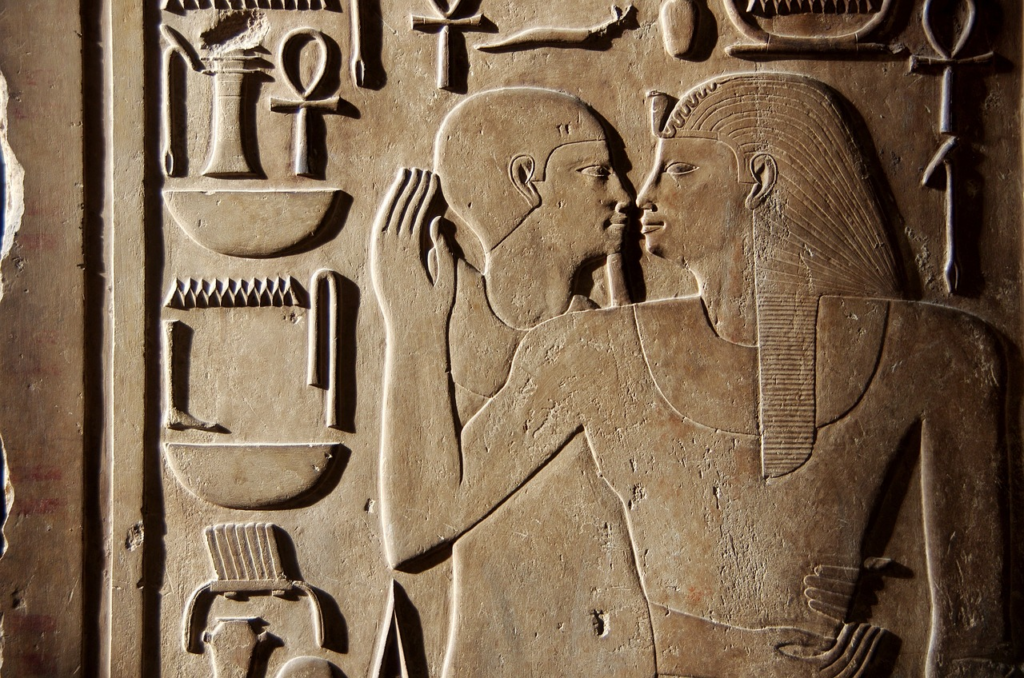The biblical narrative of the Exodus is one of the most fascinating and rich in symbolism and spiritual lessons. One of the most intriguing and debated questions in this story is why God hardened Pharaoh's heart. This divine act has provoked many theological, philosophical and ethical discussions over the centuries.
The Biblical Context
The story of the Exodus begins with the children of Israel living as slaves in Egypt. God chooses Moses to lead the people of Israel out of slavery and into the Promised Land. Moses is instructed to go to Pharaoh and demand that he release the Israelites. Pharaoh repeatedly refuses, and each refusal is followed by a plague sent by God. Pharaoh's heart is described as hardened, both by himself and by God.
Biblical references
The narrative about the hardening of Pharaoh's heart appears several times in the book of Exodus. Some important verses include:
- Exodus 4:21: "The Lord said to Moses, "When you return to Egypt, see that you do before Pharaoh all the wonders that I have put in your hand; but I will harden his heart, so that he will not let the people go."
- Exodus 7:3: "But I will harden Pharaoh's heart, and I will multiply my signs and my wonders in the land of Egypt."
- Exodus 9:12: "The Lord hardened Pharaoh's heart, and he did not listen to Moses and Aaron, as the Lord had spoken to Moses."
- These verses indicate that the hardening of Pharaoh's heart was partly a divine act. However, there are also passages in which Pharaoh himself hardens his heart (Exodus 8:15, 8:32, 9:34).
Interpreting the Hardening of the Heart

Free Will and Divine Sovereignty
One of the first questions that arises is the relationship between human free will and divine sovereignty. How can we reconcile the idea that God hardened Pharaoh's heart with the concept of free will? One perspective is that God, in his omniscience, knew how Pharaoh would react in each situation and used those reactions to fulfill his purposes. The hardening of the heart can be seen as God allowing Pharaoh to follow his own stubborn and prideful path, amplifying his own choices.
Justice and Judgment
Another interpretation is that the hardening of Pharaoh's heart is an act of divine justice. Egypt had enslaved and oppressed the Israelites for generations, and the plagues were a judgment against this oppression. By hardening Pharaoh's heart, God was ensuring that the plagues would be completely fulfilled, demonstrating his power and justice not only for Egypt, but for all nations.
Purpose and Revelation
Furthermore, the hardening of Pharaoh's heart served to reveal God's power in a clear and unquestionable way. In Exodus 9:16, God says: "But I have kept you for this very purpose, to show you my power, and that my name may be proclaimed in all the earth." The plagues and the deliverance of Israel were not just for the immediate benefit of the Israelites, but so that the whole world would know and recognize God's power.
An Act of Mercy?
Interestingly, some theologians argue that the hardening of Pharaoh's heart can also be seen as an act of mercy. Each plague was an opportunity for Pharaoh to repent and recognize the God of Israel. Even though he resisted repeatedly, each time his heart was hardened, he had another chance to change his attitude.
Theological perspectives
The Reformed Perspective
In Reformed theology, especially in the Calvinist tradition, the hardening of Pharaoh's heart is often seen as an example of God's absolute sovereignty. God, in his sovereign will, chooses to harden Pharaoh's heart in order to fulfill his purposes. This perspective emphasizes that God is just in all his actions, even if human beings do not fully understand his ways.
The Arminian Perspective
In contrast, Arminian theology places a greater emphasis on human free will. Some Arminian theologians interpret the hardening of Pharaoh's heart as God withdrawing His grace, allowing Pharaoh to follow his own hardened course. This view attempts to maintain Pharaoh's responsibility for his own actions while still recognizing God's sovereignty.
Contemporary implications
Lessons in Faith and Obedience
For believers today, the story of Pharaoh's hardening of heart can serve as a warning about the dangers of resisting God's will. It calls us to reflect on our own hearts and our willingness to obey God. It is a reminder that stubborn resistance against God can lead to severe consequences.
God's Sovereignty in Our Lives
Furthermore, this narrative reinforces God's sovereignty in all circumstances. Even when we don't understand why certain things happen, we can trust that God is in control and that He has a greater purpose. This can bring comfort in times of difficulty and uncertainty.
Justice and Mercy
Finally, the story challenges us to contemplate God's nature as just and merciful. Although the hardening of Pharaoh's heart may seem harsh, it is a part of God's plan to demonstrate justice against oppression and mercy through deliverance. This invites us to trust in God's justice and mercy in our own lives and in the world around us.
Why God hardened Pharaoh's heart
The question of why God hardened Pharaoh's heart is complex and multifaceted. It involves God's sovereignty, human free will, divine justice and the purpose of revelation. Although we may not have all the answers, we can see that this narrative is rich in spiritual and theological lessons. It calls us to reflect on our own relationship with God, to trust in His sovereignty and to seek to understand and live according to His justice and mercy.
See also: Prayers for God to open financial doors; see the prayers
June 11, 2024
With much faith and positivity, she writes for the Oração e Fé daily, bringing messages and Divine teachings to everyone.